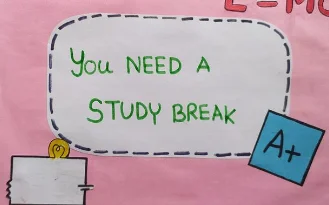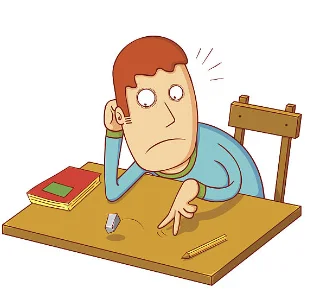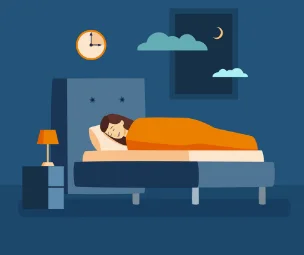Everyone has their way of studying, but having a routine to stick to is important. Studying for long periods can cause damage to your brain, and friends and family tell you that breaking down a little now and again is a good idea.
Here are some signs you should take a break from studying if they happen:
Signs to Tell when to Take a Break from Studying

The signs that you need to take a break from studying are different for everyone. If you’re having trouble concentrating, it could be that you need some time away from your studies and the stress of schoolwork.
Take a break and come back refreshed and ready to tackle your next problem! Here are some signs that tell when to take effective break from studies:
Poor Focus
You can’t focus on the task at hand. Also, you have trouble focusing on what you’re doing, even if it’s only for a few minutes.
This means that your mind is elsewhere, which can be frustrating at best and detrimental at worst. Your brain needs rest!
Low Concentration
Your concentration starts fading after 15 minutes or so: After 15 minutes, your concentration starts fading rapidly.
If this happens consistently, then perhaps it’s time to have a break and come back refreshed!
Fatigue
You could feel tired despite having slept enough hours. If you feel tired despite having slept enough hours, then perhaps it’s time for a break from studying already.
It might be because your body needs rest or perhaps because your mind is craving some peace and quiet.
Effects of Studying Without Breaks
The effects of studying without breaks include:
1. Lack of Motivation

When you are not motivated, you will not want to do anything, so your concentration will be very low.
When you lack motivation, learning and remembering things from your class or lecture is hard. You might even feel like studying would be too much trouble and that you don’t have time for it.
2. Difficulty Concentrating on Your Studies
Studying without breaks is not a good idea, especially if you are studying for a test or exam. Because the brain needs rest and sleep to function properly. Without adequate sleep, the brain becomes less efficient, affecting your ability to concentrate on your studies.
If you study for too long without taking a break, you may feel tired and sleepy during the day.
This can make it hard to focus on your studies and other activities requiring concentration. It is important to take breaks from studying to keep up with your work and stay awake throughout the day.
3. Increased Stress Levels
Studying without a break can make you feel stressed out. You may forget what you learned the last time you studied or even what the topic was in general. This can cause a lack of focus and ultimately cause you to procrastinate on studying.
In addition, when you have no breaks during your study sessions, your brain is not getting any rest. Your neurons will start tired from constantly being stimulated by the thoughts of what to learn next or how much more work is left to do.
This leads to increased stress levels in both short-term and long-term memory retention.
Other Methods of Reducing Fatigue while Studying
There are many other ways to reduce your fatigue while studying. Some of them include:
Getting Enough Sleep

Get at least 7-8 hours of sleep each night. It is important to get enough sleep because it helps your body repair itself and keep you focused during the day.
You will feel more refreshed and ready to go when you wake up in the morning.
Sleeping at least 8 hours every night is critical for your body to get the rest it needs to function at its best. If you’re not getting enough sleep, it can cause fatigue and other negative feelings like irritability or depression.
Eating a Healthy Diet
Eating a healthy diet can help you to feel better and have more energy. You should eat foods high in vitamins and minerals, such as fruits, vegetables, lean meats, and fish.
The right combination of carbohydrates and protein will help keep you energetic throughout the day. You should also drink a lot of water to keep your body hydrated.
Exercising Regularly
Exercising regularly is a great way to reduce fatigue while studying. If you do, your brain will be better able to absorb and retain information.
Exercising also makes you feel more awake, alert and focused. It helps you get through your day without getting distracted by your fatigue.
You don’t have to take up running or a gym membership to reap these benefits — just walking outside or doing some calisthenics at home will do the trick!

